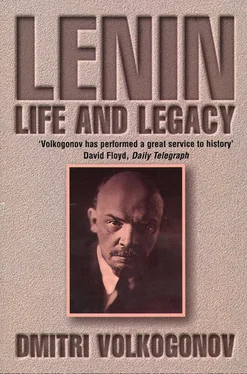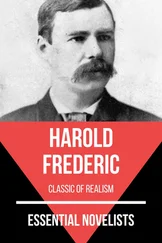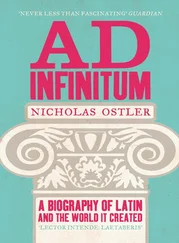Neither in Russia nor abroad did Lenin suffer deprivation. He lived on his mother’s resources, his ‘Party salary’, the donations of various benefactors at various times. Pamphlets and articles printed for illegal distribution inside Russia earned precious little, while the émigré market for such works was scarcely more rewarding. His mother owned part of the estate at Kokushkino which the family had put at the disposal of a certain Anna Alexandrovna Veretennikova, who paid Lenin’s mother her admittedly not very large share of the rent regularly. The sale of the estate helped to fill the family’s coffers. In February 1889 Lenin’s mother acquired a farm at Alakaevka in Samara province. Her agent for the purchase was Mark Yelizarov, Anna’s future husband. For 7500 roubles the family had acquired just over 200 acres, much of it non-arable. The original intention had been to carry on a farming business, with Vladimir in charge, and in fact in their first year they acquired some livestock, and sowed some wheat, buckwheat and sunflowers. But Vladimir soon became bored as ‘farm manager’, and began, in Nikolai Valentinov’s words, ‘to live on the farm like a carefree squire staying at his summer home. He would ensconce himself in the lime-tree avenue and prepare for the state exams at St Petersburg University, study Marxism and write his first work, an article called “New Economic Movements in Peasant Life”.’ 129 The article describes the exploitation of peasants and land, criticizes many of the ills of capitalism in the countryside, such as money-lending, leasehold, the increasing number of ‘kulaks’, or rich peasants. Yet when Lenin was put off by his own experience of farming, the family leased out land to a kulak, one Mr Krushvits, who paid rent to the Ulyanovs for several years, substantially supplementing their income.
There may have been another reason for leasing out the land. The peasants of the region were extremely poor, and those around Alakaevka especially so. Numbering thirty-four households, together they had about 160 acres of arable, roughly the same as the Ulyanovs. Farming in the midst of such appalling poverty may have been felt by the budding Marxist as an uncomfortable moral position, especially as he himself had sued his peasant neighbours for letting their cattle wander onto his crops. None of this prevented the family from summering at Alakaevka every year, reminding Krushvits of his responsibilities, and collecting their rent. Eventually it was decided to sell the farm, and a document composed by Vladimir in his mother’s name shows the sale having been made to S.R. Dannenberg in July 1893. 130
Maria Alexandrovna had evidently decided it was better to realize her assets and keep the money in the bank, together with what she had been given by her late husband’s brother, and live on the interest. Meanwhile, no one in the family was earning anything. Vladimir soon gave up legal practice, and Anna, Dmitri and Maria were long-term students, and showed no inclination to supplement the family income. As Valentinov wrote: ‘the money deposited in the bank and converted into state bonds, together with the pension, constituted a special “family fund”, which Lenin’s very thrifty mother capably managed over many years. They all dipped into this fund … They certainly were not rich, but over this long period there was enough …’ 131 Enough, for instance, for Vladimir to be able to write to his mother from Geneva: ‘I had hoped Manyasha [Maria] would come … but she keeps putting it off. It would be good if she came in the second half of October, as we could pop down to Italy together … Why can’t Mitya [Dmitri] also come here? Yes, invite him, too, we’ll have a great time together.’ 132
Such a secure material environment must have played a significant part in Lenin’s intellectual development, enabling him to run his own life, decide for himself where to live, where to go, what to do. Had he been the ‘proletarian’ some authors would have liked him to be, his position among the leaders of the Russian social democratic movement would have been immeasurably less important. He would not have had time for self-education, literary work or Party ‘rows’.
After the failure of the 1905 revolution, when revolutionaries – including Lenin – who had returned hopefully from Europe now had to retrace their steps, an important source of support for Lenin and Krupskaya in their various stopping-places was the Party fund, a source that was never revealed in published documents, but whose existence Lenin himself confirmed in a letter to his mother in 1908: ‘I still get the salary I told you about in Stockholm.’ 133 In fact, references to money abound in Lenin’s voluminous correspondence with his mother and sisters, usually reporting that he had received a draft, or asking for money to be sent urgently, and so on. 134
Another, and rather more bountiful, source of income was the Party. The Russian Social Democratic Labour Party (RSDLP) was set up, rather shakily, at its First Congress in 1898 by a handful of provincial organizers. It was quickly decimated by the police, but its name remained as the banner for whoever was capable of gathering revolutionary-minded workers and intellectuals for the purpose of building a large and powerful revolutionary party. In February 1900, as soon as he had completed his term of exile in Siberia, Lenin departed for Europe, where he launched a newspaper, Iskra (The Spark), and began recruiting his own agents. These he sent back into Russia, both to distribute his message via Iskra and to obtain the allegiance of local forces.
By 1903 it seemed Lenin and his closest comrades had gathered sufficient backing to hold a new Party Congress, called the Second, for the sake of keeping the already well established name. This took place in the summer of 1903 in Brussels, moving to London when the Russian secret police proved too intrusive. Far from consolidating the Party’s forces, however, the Second Congress witnessed their split into Leninists and anti-Leninists, or Bolsheviks (Majorityites) and Mensheviks (Minorityites). These new labels came about as the result of one particular vote which gave Lenin a minuscule majority.
In the period following this fiasco, with the resulting contest for various resources and Party assets such as printing facilities and, especially, money, Lenin had to devote a great deal of attention to establishing his own, Bolshevik, fund. He needed it to maintain his ‘professional revolutionaries’, to conduct meetings and congresses, support his own publishing activities, and finance agitation inside Russia. The ‘professional revolutionaries’ of course knew about this fund, which in the final analysis Lenin personally controlled, since he was the creator of the Bolshevik wing of the Party, as well as its ideologist and chief organizer. For instance, Lev Trotsky, who was then on very bad terms with Lenin, wrote in June 1909 to his brother-in-law Lev Kamenev, who was Lenin’s right-hand man: ‘Dear Lev Borisovich, I have to ask a favour which will give you no pleasure. You must dig up 100 roubles and cable it to me. We’re in a terrible situation which I will not describe: enough to say that we have not paid the grocer for April, May, June …’ Kamenev left it up to Lenin to decide whether or not to provide Trotsky with the money, but there is no indication of the outcome. 135
At times the Bolsheviks had very considerable funds at their disposal, some of it legitimate in origin, some of it not. Some came from local Party committees in Russia, who in turn gathered it from their members and supporters: on the eve of the 1905 revolution, there were probably 10,000 paid-up members of the Party altogether. In his memoirs, the former Bolshevik A.D. Naglovsky wrote that in the summer of 1905 he was sent by the Kazan committee to Geneva to hand over 20,000 roubles to Lenin and await instructions. 136 In fact, the origins of such money were tortuous. Lenin himself frankly admitted after the revolution: ‘The old Bolshevik was right when he explained what Bolshevism was to the Cossack who’d asked him if it was true the Bolsheviks stole. “Yes,” he said, “we steal what has already been stolen.”’ 137
Читать дальше












